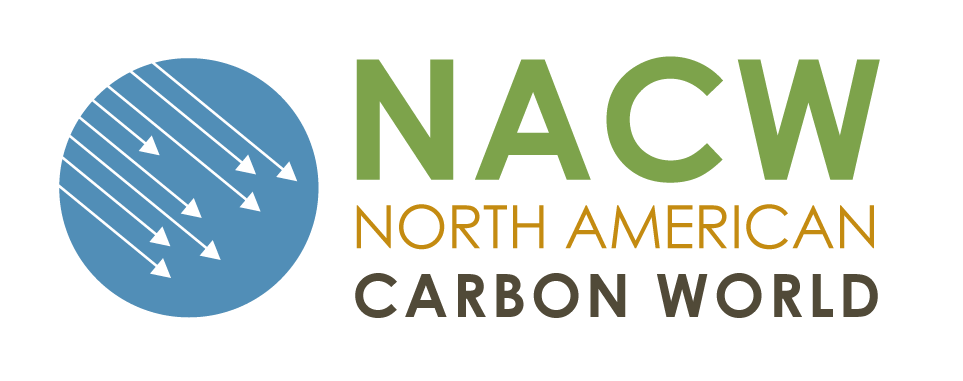With support from the California Department of Forestry and Fire Prevention (CalFIRE), the U.S. Forest Service (USFS), and through the Reserve’s workgroup development process, the U.S. Urban Forest Protocol was revised and separated into two distinctive protocols: Urban Tree Planting and Urban Forest Management. The Reserve hopes that these new protocols facilitate implementation of more urban forest projects.
U.S. Urban Forest Management Version 1.1
The Urban Forest Management (UFM) Protocol Version 1.1 revision offers improved monitoring, reporting, and verification guidance. The associated Quantification Guidance includes default factors designed to reduce project implementation costs.
- U.S. Urban Forest Management Protocol V1.1 (April 18, 2019)
- U.S. Urban Forest Management Protocol V1.1 Summary
- U.S. Urban Forest Management Protocol V1.1 – Redline Changes from V1.0 (April 18, 2019)
- Summary of Changes from UFMPP V1.0 to V1.1
Urban Tree Planting Version 2.0
The U.S. Urban Tree Planting (UTP) Protocol Version 2.0 is a revised version of the U.S. Urban Forest Protocol Version 1.1 and was adopted by the Reserve Board of Directors on June 25, 2014.
- U.S. Urban Tree Planting Protocol V2.0 (June 25, 2014)
Previous Versions
U.S. Urban Forest Management Version 1.0
The U.S. UFM Protocol Version 1.0 incorporates guidance and requirements from the U.S. Urban Forest Protocol Version 1.1 but also allows for improved management of urban trees (carbon stocks). The protocol was adopted by the Reserve Board of Directors on June 25, 2014.
- U.S. Urban Forest Management Protocol V1.0 (June 25, 2014)
Public Comments
| California Urban Forest Council | Sacramento Tree Foundation |
| David Diaz | Sacramento Municipal Utility District |
| Greg McPherson Comment 1 Greg McPhersion Comment 2 |
TreePeople |
| Mark McPherson | Zagori |
Workgroup Participants
| ArborVitae Environmental Services | Sacramento Municipal Utility District |
| California Department of Forestry & Fire Protection | Sacramento Tree Foundation |
| California Urban Forests Council | SCS Global Services |
| City of Palo Alto, CA | The Nature Conservancy |
| City of San Jose, CA | UC Davis |
| Environmental Capital LLC | University of Florida |
| Environmental Conservation Alliance | US Forest Service |
| Hillis Clark et al | West Coast Arborists |
U.S. Urban Forest Protocol Version 1.1
- U.S. Urban Forest Protocol Version 1.1 (March 10, 2010)
- U.S. Urban Forest Protocol Summary
- ARB Compliance Offset Protocol for Urban Forest Projects
- Comparison of Reserve U.S. Urban Forest Protocol to ARB Compliance Offset Protocol for Urban Forest Projects
The U.S. Urban Forest Protocol Version 1.1 was approved by the Reserve Board in March 2010. This protocol revision clarified protocol guidance and program policies, but did not affect eligibility criteria for urban forest projects. Notable changes included:
- Updated project start date language to be consistent with Reserve start date policy
- Added methodology for quantifying GHG emissions from vehicles and equipment for municipalities with insufficient data
- Clarified the project reporting and verification schedules
- Added the verification protocol guidance to the protocol
U.S. Urban Forest Protocol Summary of Changes from Version 1.0 to 1.1 (March 10, 2010)
Version 1.0
- U.S. Urban Forest Protocol Version 1.0 (August 12, 2008)
- U.S. Urban Forest Project Verification Protocol Version 1.0 (August 12, 2008)
- U.S. Urban Forest Protocol Summary
The U.S. Urban Forest Project Reporting Protocol is the result of a stakeholder-driven process that began in September 2006. The U.S. Forest Service Center for Urban Forest Research (CUFR), widely known for its extensive technical expertise in quantifying environmental benefits of urban forests, led a two-year process involving a wide range of urban forest experts and various other stakeholders to produce a draft U.S. Urban Forest Protocol for the Reserve. As part of the process, CUFR developed a standardized calculation tool, the CUFR Tree Carbon Calculator (CTCC), that can be used to calculate tree carbon sequestration as part of the protocol.
The following document is a summary of staff responses to all public comments received:
Staff Response to Public Comments, Version 1.0 (August 2008)
Workgroup, Stakeholder, and Committee Participants
| Alliance for Community Trees | James P. Allen and Associates, Consulting Arborists |
| Amma Center of New Mexico | L.A. Department of Water and Power |
| Arizona State University | Lomakatsi Restoration Project |
| Audubon Society | Los Angeles Conservation Corps |
| BioCompliance | Los Angeles Urban Forestry Program |
| Board of Forestry and Fire Protection | Minnesota Department of Natural Resources |
| Building Industry Association | Natural Resources Defense Council |
| CalFire | Pacific Forest Trust |
| California Air Resources Board | Pacific Gas and Electric Company |
| California Biomass Collaborative, UC Davis | Sacramento Municipal Utility District |
| California Climate Action Registry | Sacramento Tree Foundation |
| California Department of Transportation | San Diego Gas & Electric |
| California Energy Commission | San Diego State University |
| California Forestry Association | Sierra Business Council |
| California Integrated Waste Management Board | Society of Municipal Arborists |
| California Oak Foundation | Southern California Edison |
| California ReLeaf | Southern University |
| California State Parks | Stanford University |
| California State Polytechnic University, Pomona | Stonebridge Properties |
| California State Polytechnic University, San Luis Obispo | The Nature Conservancy |
| California State University, Fresno | The Sampson Group |
| California State University, Fullerton | TreePeople |
| California Tree Collaborative | Trust for Public Lands |
| California Urban Forest Council | U.S. Environmental Protection Agency |
| Casey Trees | U.S. Forest Service |
| CH2M Hill | UC Berkeley, Integrated Hardwood Range Management Program |
| City of Albuquerque, NM, Parks and Recreation Department | UC Coop Extension, Urban Horticulture |
| City of Davis, CA | UC Irvine |
| City of Los Angeles, CA | UC Riverside, Integrated Hardwood Range Management Program |
| City of Morgan Hill, CA | UC San Diego |
| City of Sacramento, CA | UC Santa Barbara |
| City of Vallejo, Landscape Management | University of Cincinnati |
| Conservation Strategy Group | University of La Verne |
| Davey Research Group | University of Southern California |
| Dudek Engineering and Environmental Consultants | Urban ReLeaf |
| EcoSecurities | USFS, Southern Center for Urban Forestry Research |
| EDAW, Inc. | Western Chapter ISA |
| Ellison, Schneider & Harris Wisconsin | Department of Natural Resources |
| Forest and Fish Conservation Caucus | Woodland Tree Foundation |
| Great Valley Center | World Resources Institute |
| Independent Arborists |
Please contact the Reserve with questions or comments.




